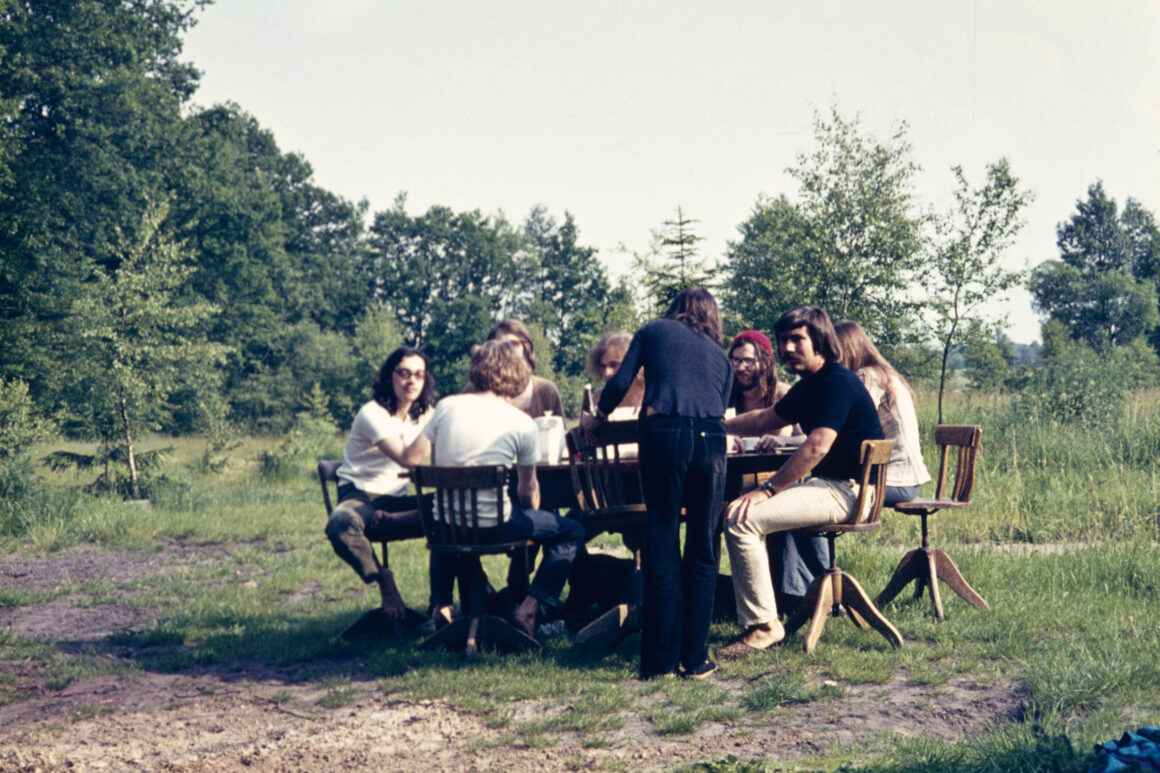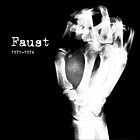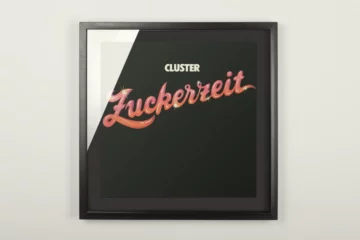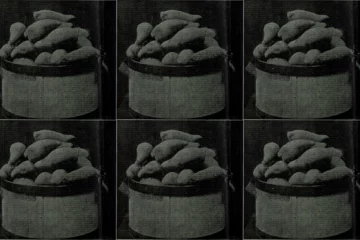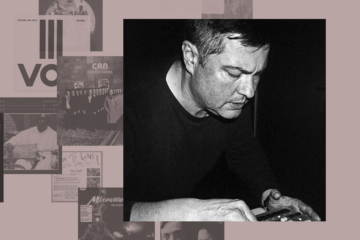What do the Monkees, Village People, Boney M., New Kids on the Block, Spice Girls and Faust have in common? They are »created bands«. Even if very different ones. And in order to avoid the risk of action for an injunction: they were created in very different ways, too.
The story with Faust goes roughly as follows: the cultural journalist Uwe Nettelback, back in 1969, had a conversation with Horst Schmolzi, A & R manager of the Hamburg based record company Polydor, about his plans for a new band. Allegedly, Schmolzi was thinking of a German equivalent of the Beatles. Not long afterwards, Nettelbeck would set about to put this idea into action in his own way. A generous advance from the label helped him in the process.
(Explanatory note: Julian Cope, in his revival inducing book „Krautrocksampler“ from 1995, tells the story a little differently. Here, Nettelbeck had the conversation in 1970 with one Kurt Enders at Polydor, who had been imagining some extreme music independent of the example of Anglo-American bands. However, it seems difficult to find further evidence for this beyond Cope’s book, which, by the way, contains more than only one error.)
As David Stubbs writes in his major Krautrock history »Future Days«, the musicians that would go on to be Faust were put together by Nettelbeck in Hamburg, basically merging the two local bands Nukleus and Campylognatus Citelli, after having met the bass player Jean-Hervé Péron of Nukleus through his contacts. Apart from Péron, Nukleus consisted of the guitarist Rudolf Sosna and the saxophone player Günther Wüsthoff. Campylognatus Citelli were drummer Werner »Zappi« Diermaier, keyboarder Hans Joachim Irmler and another drummer, Arnulf Meifert.
Nettelbeck put up the resulting sextet as a commune in an old schoolhouse in the village Wümme of Lower Saxony, today a district of Wistedt. But mainly, he would use the money from the label to modify the building, setting up a recording studio and on top of that moving in as their producer, as would the sound engineer Kurt Graupner.
This instance is unusual not solely due to the fact that a journalist is dwelling together with a band. After all, Nettelbeck was a successful writer for magazines such as Die Zeit and Filmkritik, followed by a short period as an editor of _Konkret._A left-wing wordsmith, as it were. In Faust, cultured citizenship thus conjoined with counter culture in a collective housing project where music could sprout far away from the label executives intent on sales.
Faust therefore was conceived as a highly cerebral undertaking whose consistent design offered unequalled opportunities. Starting with the name: as German as Goethe, as massive as Max Schmeling, as pugnacious as the students agitated by 1968, perfectly suggestive. Consequentially, the cover of their first record illustrated this with with an X-ray photograph of the clenched fingers of a hand.
The first result of this music retrieval under laboratory conditions was released fifty years ago. It starts with the Rolling Stones and the Beatles, literally, in fact. The album, simply titled »Faust«, at the beginning of its first piece, »Why Don’t You Eat Carrots?«, quotes the eponymous sentence from »(I Can’t Get No) Satisfaction«, followed by the chorus of »All You Need Is Love«, enveloped in feedback buzz, two snippets of tape buried under disturbance frequency before the »actual« music sets in – screaming and atonal piano tones, succeeded by a messy mix of music for brass instruments and rock.
When kicking off as a band, Faust appropriated no one less than the most popular bands in the world at that time and abruptly saw them off, turned them into shreds of a collage. The gesture is bold: This here is part of the audio archive, we briefly recognise it, only to ruggedly scare it off. Starting from now, it will be something new. Herbaceous. At the same time, the order of the quoted sentences could be read as a joke in which the Beatles give the Rolling Stones advice as to how they might get some satisfaction, after all. Eventually, a dialogue ensues between a man and a woman with a northern German accent in which the woman asks: »Why don’t you eat carrots?«
When kicking off as a band, Faust appropriated no one less than the most popular bands in the world at that time and abruptly saw them off, turned them into shreds of a collage.
Tapes and their targeted use as musical instruments would remain important for the band in the years to follow. Whereas it is not entirely beside the point to compare this approach with the Beatles, for in 1968, »Revolution 9« from their »White Album« had given a prominent example of a musique concrète tape collage which until then had not been common in pop music. Only that it remained an exception for the Beatles. Faust, on the other hand, went on to create a new concept art pop in the spirit of avantgarde movements like Dada and Fluxus.
For Polydor, the investment proved to be a flop. With pieces like »It’s a Rainy Day, Sunshine Girl« from their second album, »Faust So Far« (1972), Faust briefly gave the impression that perhaps they did want to follow the Beatles, after all. It’s a straightforward track with driving harmonious piano tones and a steady drum rhythm underneath, the vocal melody reminiscent of a veritable song. But the repetition is so relentless for the full duration of its seven and a half minutes plus the drum sound is so brutal that one is prone to think of retained aggression primarily. Almost as if „»’m Waiting for the Man« by The Velvet Underground were covered by marching Bundeswehr soldiers. After this record, Polydor dropped the band.
Nettelbeck’s next coup was the unexpected entry into the British music market. Thanks to another trick: the chuzpe towards major labels Malcolm McLaren had demonstrated in the mid-seventies with the Sex Pistols – filling records with audio waste in order to fulfil a contract – had been performed by Faust in an even more sophisticated manner. »The Faust Tapes« from 1973 consisted of 21 pieces, some of them lasting only a few seconds, gathered up from material originally not intended by the band for release.
Uwe Nettelbeck had convinced the label Virgin to release the record and to sell it for the price of a single – half a British pound. A marketing gimmick that proved to be a hit with 60.000 units sold, causing the band to become known internationally – with collages that placed noises of all kinds on an equal footing with song fragments and instrumental sketches. In general, the weird music coming from Germany at that time found greater favour abroad than in its country of origin. And the term »Krautrock«, presumably introduced for the first time in 1971 by a German music company in an ad in Billboard magazine employing the expression »Kraut Rock«, was willingly used by British music journalists, if not invariably as flattery.
Faust again proved confidently shrewd in this respect and practised an ironic form of cultural reappropriation. On their fourth album »Faust IV« from 1973 the first track is programmatically called »Krautrock«, later being wrongly spread so as to suggest that they themselves had coined the term. But at least Faust made affirmative use of it. And created, with fuzzy guitarscapes stretched over twelve minutes, a proto drone rock of sorts. After »Faust IV«, the production of which did not run particularly smoothly, to put it mildly, both the collaborations with Virgin and Nettelbock came to an end. The group disbanded, then continued on and off. Since this millenium, there are two Faust fractions: one involving Péron and Diermaier, the other one Irmler, who also set another course with his Klangbad label.
The appraisement of Faust as a happy accident in the music business, as Stubbs puts it, seems quite appropriate. Few bands had the opportunity to develop something, free from economic restraints, that would turn out to be ground-breaking to such an extent. Quite a large number of underground noise musicians, Julian Cope being among the most outspoken, have received vital stimuli from them.
The latest appraisal by the Hamburg based label Bureau B is therefore overdue. A box collects their four albums, not including the record »Outside the Dream Syndicate« recorded together with the minimal music radicalist Tony Conrad. Instead, one gets the fifth album, »Punkt«, hithertho unreleased on legal grounds. It was recorded in Giorgio Moroder’s Munich studio, only that no-one had told him that there would be no money from the label. In addition, there is more unreleased material called »Momentaufnahmen«, and two singles, one of which featuring the demo »Lieber Herr Deutschland« which secured them the go-ahead from Polydor. How they got away with it considering this wild agitprop psychedelia collage, remains one of the mysteries of the history of music.

